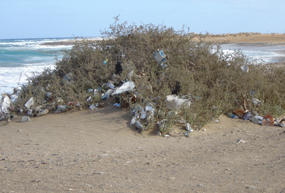Environmental Education and Capacity Building
Environmental Education
Environmental education is a cornerstone of the Watershed Management approach. Environmental education is a process of learning about and for the environment so as to work for it and not to destroy it (Muthoka 1998). Environmental education is a concept which developed in the 1970s when environmentalists searched for answers to the increasing ‘environmental crises’ throughout the world.
The World Conservation Union defined Environmental Education clearly: Environmental Education is the process of recognising values and clarifying concepts in order to develop skills and attitudes necessary to understand and appreciate the inter-relatedness among man, his culture and his biophysical surroundings. Environmental education also entails practice in decision making and self-formulation of a code of behaviour about issues concerning environmental quality (UNESCO 1983, citied in Muthoka 1998, 2).Environmental education starts with the creation of awareness about environmental issues (e.g. responsible management of waste; see figure) and includes learning about interactions of geospheres, planting trees, etc. Environmental education can be carried out in schools, universities, families, during community workshops, etc.
Capacity Building
In the process of capacity building regional actors acquire qualification concerning natural resource management and development and organisations develop within the watershed. This is accompanied by processes of change directed to more efficiency and effectiveness as well as process of reform to more democracy, wealth and development. Tools that are used are training and extension, for example (Inwent 2007).
